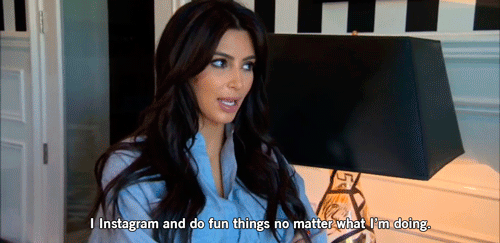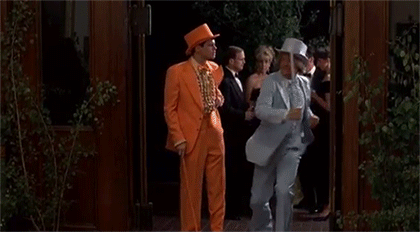Social Media, For Good Or For Evil?
5 in 5 - Brave & Heart HeartBeat #127 ❤️
This week were looking at the good and evil dichotomy of Social Media advertising, featuring Kim K, of course, the obsolete suit and tie dress code and the brave new world of advertising while facing an economic AND environmental crisis. Fun!
Let’s get into it
Were you forwarded this? Not a subscriber? 👉 Sign up here
#1 - Kim K Fine Announces The End of The Crypto Gold Rush
Not that we didn’t already know, but okay.
Kim Kardashian recently settled a 1.6 million dollar fine to the SEC, the Securities and Exchange Commission, for boosting a crypto currency online.
Is it illegal? Well, yes, if you haven’t been clear about if you’re being paid to promote it, and the more important question does seem to be, WHY were celebs being paid to promote these crypto tokens?
US Congress’ foremost crypto sceptic makes the important point that “The very fact that you’re being paid to tout it means that there is an ongoing business enterprise pushing the price up”. So, a classic pump and dump scheme, usually.
While the warning from the SEC in 2017 about celebrity endorsements fell on deaf ears, fining Kim Kardashian is a publicity stunt as much as a punishment, something they’ve basically admitted.
The problem here though is that it may be a little too late. Following the downturn of crypto in general many celebrities who were active on the scene have gone off the wagon, for example Jimmy Fallon and others removing NFT’s from their twitter profile photos.
So, thanks to the SEC for taking a stand, but a good few months too late.
#2 - Ice Bucket Challenge Actually Useful
Another late bloomer, but in a good way this time.
Remember the Ice Bucket Challenge? We’ll set the scene for you. It was 2014, the world cup was happening, Gagnam style was playing in the background of your every waking moment, and people were asking you to dump a bucket of ice cold water over your head and post the video on Facebook, nominating others as a reward.
Well, the Ice Bucket Challenge, as most of us hopefully noticed, was originally created as a way to raise money and awareness for ALS, a neurodegenerative disease which currently has no cure.
While it may be a distant memory to us, albeit forever ingrained on many Facebook profiles, the money raised went towards the creation of a new drug which has just been approved, with the CEO of the ALS Association noting that this is proof that the videos greatly impacted the fight against ALS.
The challenge raised 115 million dollars from over 17 million videos, 2.2 million dollars of which went towards the development of the newly-approved medication Relyvrio, which slows the progression of ALS.
In a recent survey, 84% of researchers said that funding from the challenge accelerated their work, and 72% said the funding increased their ability to receive further funding to boot.
Social Media CAN be used for good then, it seems. Noteworthy, Kim Kardashian also participated in this challenge – putting her on both the good and evil side of Social Media’s power…
#3 - Are Suits Out For CEOs?
Apparently post pandemic dressing is becoming a bit of a conundrum for some CEO’s and workplace higher ups – is the suit out?
While the suit was once THE symbol of being the boss, after our years of home working and the influence of informal start-up culture and the general changing tides of fashion, wearing a suit may not be portraying to employees and clients exactly what it used to.
Although the pandemic has accelerated the level of informality now accepted by companies, some people argue that the suit and tie combo became a tainted brand long before the pandemic thanks to the MP’s expenses scandal and the 2007-2008 banking crisis. Men in suits were no longer necessarily the gold standard of trustworthiness…
A flesh and blood example of the changing fashion and perceptions is the newest and youngest ever “dragon” in the Dragons Den, Steven Bartlett. He vowed that he would never wear a suit on the show as he wants to represent a new breed of young business leader.
And to be honest, the Duncan Bannatyne and Peter Jones look kind of stuffy, old, and dare we say it silly(?) next to him in the recent promo photos.
#4 - What Is The Lipstick Index?
The so-called lipstick index, coined by Estée Lauder's founder Leonard Lauder, is the theory that sales of “affordable luxuries” rise in economic downturns.
What counts as an affordable luxury?
For example, two business that have actually seen an uptake since the cost-of-living crisis, a press on nails brand that replaces salon trips, and a luxury bakery, would count as affordable luxuries.
If you know you won’t be splashing out on a holiday any time soon, why not get a coffee and a fancy pastry if you’ve still got a little bit of extra cash in your pocket.
Consumer psychologists say there is in fact evidence that people will attempt to boost their mood with small treats in difficult times, because of the psychologically daunting nature of the situation.
Interestingly, the crisis seems to be having the opposite effect on famously environment destroying and self-proclaimed “cheap” online clothing store Boohoo, recently mentioned in the newsletter for their baffling decision to appoint a Kardashian sister as their environmental advisor.
They’ve noticed a 10% fall in revenue recently, with the cost-of-living crisis being touted as one reason.
This raises the question, how should you be marketing your brand during an economic downturn? Full luxe may not be the way to go, but maybe affordable luxury trumps cheap mass consumerism?
#5 - Car Ads Forced To Advertise Bikes
As odd as this sounds, we recently saw it in action.
In March of this year the French government confirmed a new rule that car ads must now include a mandatory reminder to drivers to adopt more environmentally responsible options to driving when possible. Much like adverts for fast food, there are set phrases to choose from – “Consider carpooling”, “For day-to-day use take public transport” or “For short trips opt for walking or cycling”.
The requirement was confirmed after years of lobbying in France from environmental groups, who would actually like to see car ads banned full stop. Much like the Cannes Lions Greenpeace fiasco we covered a while back, and the recent move in the UK from advertising creatives to “wreck the brief” and purposely derail fossil fuel related ads.
And because we are European jet-setting types here at B&H, we saw one of these ads on French TV just yesterday.
The ad shows a beautiful new car in the garage, and the owner admires it and gives it a fond little stroke as he passes by on his bike, while the voice over notes that the car is a work of art, but not for every day.
This brand really leaned into the new regulations, which may be the way to go – advertising their cars as a luxury while still looking environmentally friendly. Win-win?
Bonus
Plants can now use knives. Kind of.
An artist created a device which allows a plant’s natural biological processes to control movements, and then strapped a machete to it.
Want to know how to use digital media for good, and not evil?


